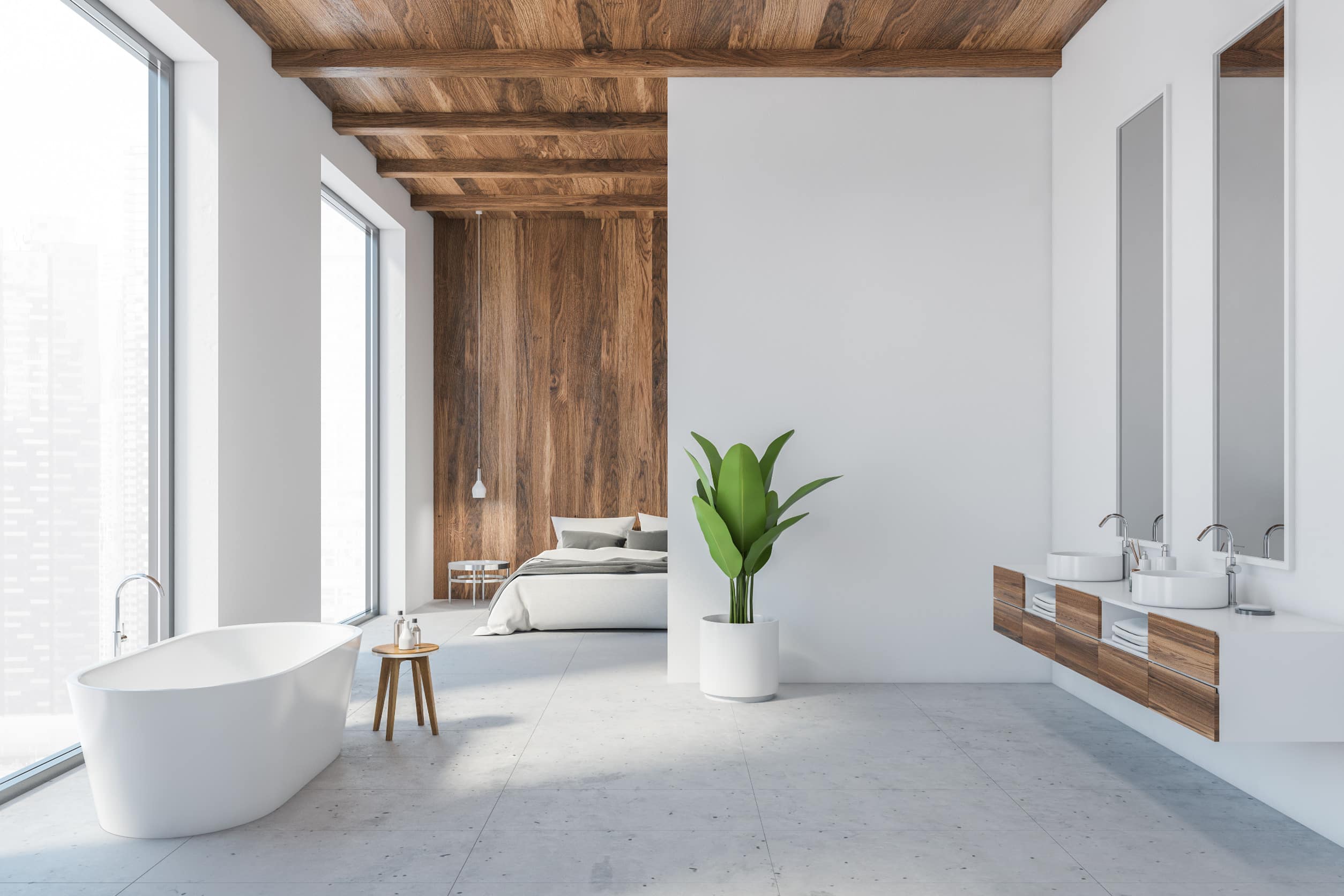Tips for a healthy home
Adults spend around 80 to 90 percent of their time indoors. This makes it all the more important that the living environment is designed in such a way that it does not impair the health of the residents. Our expert explains what you need to look out for when planning, choosing products and carrying out building work.
Tip 1: Take all factors into account to ensure the long-term health of your home
These days, you often hear the catchphrase “healthy living environment”. However, it is not always clearly defined what it means. In general, one could say that all the components that have a positive effect on a person’s well-being and health can be called “healthy for living”. These components include sufficient daylight and fresh air, good quality drinking water and a comfortable room temperature. On the other hand, an excessively high noise level, mold growth, harmful emissions from furniture, textiles and building materials as well as residential exposure to radon gas should be avoided.
Tip 2: Create a checklist for your construction or renovation project
To ensure plenty of natural daylight in your own four walls, install large glass panels that preferably face south. When refurbishing your home, enlarge the existing windows if possible or necessary.
Due to the high insulation standard today, houses are tighter than ever so that there is hardly any exchange of air through joints and cracks. The consequences are a higher CO2 content in the air and excessive humidity. To avoid fatigue, headaches and ultimately mold growth, adequate ventilation is absolutely essential. This can be done manually by cross-ventilating the rooms several times a day. Or by installing a controlled ventilation system complete with heat recovery.
It is a well-known fact that noise can make you ill. But solidly built houses help you reduce noise from outside, if necessary supported by the installation of soundproof windows. Avoid an all too open floor plan inside the apartment or house, because it causes a higher noise level. Glue floor coverings such as parquet firmly to the subfloor (only use EMICODE®-labelled adhesives) to avoid unnecessary footfall sound.
Ensure a comfortable room temperature in summer and in winter. Thermal insulation of the building envelope and shading devices for the windows protect against the cold in winter and overheating in summer. If you reduce the heating / room temperature in winter too much, the moisture in the air will condense on cold surfaces and thus cause the risk of mold growth.
The do-it-yourself installation of a drinking water system can release dangerous amounts of harmful particles into the water. Better leave the installation work to a professional plumber.
It is advisable to have the property or existing house checked for exposure to radon. The noble gas is suspected of causing cancer. It may be necessary to seal the floor slab or the basement more tightly. If the soil is contaminated, it must be removed and disposed of properly.
Tip 3: Watch out for EMICODE®-certified products
Whether adhesives, window sealing tapes or insulation boards – before use, all building materials must have been tested for harmful emissions such as volatile organic compounds (VOCs). The Technical Council of the GEV, which is the Association for the Control of Emissions in Products for Flooring Installation, Adhesives and Building Materials, has taken on this challenging task. Its experts award the generally recognized EMICODE® quality seal to building materials that feature very low emission values. Important to know for consumers: The products are tested not just once, but repeatedly and unannounced by independent testing institutes. Therefore, together with the hired craftsmen, choose products that bear the EMICODE® label if you want to be on the safe side.

Photo: ©ismagilov/123rf.com/GEV
Do You Have Questions?
If you have any questions on certain topics or want to contact us for another reason, please contact us by phone, fax or email.
Phone: +49 211 / 67931-20
Fax: +49 211 / 67931-33
info@emicode.com
Share article on Social Media: